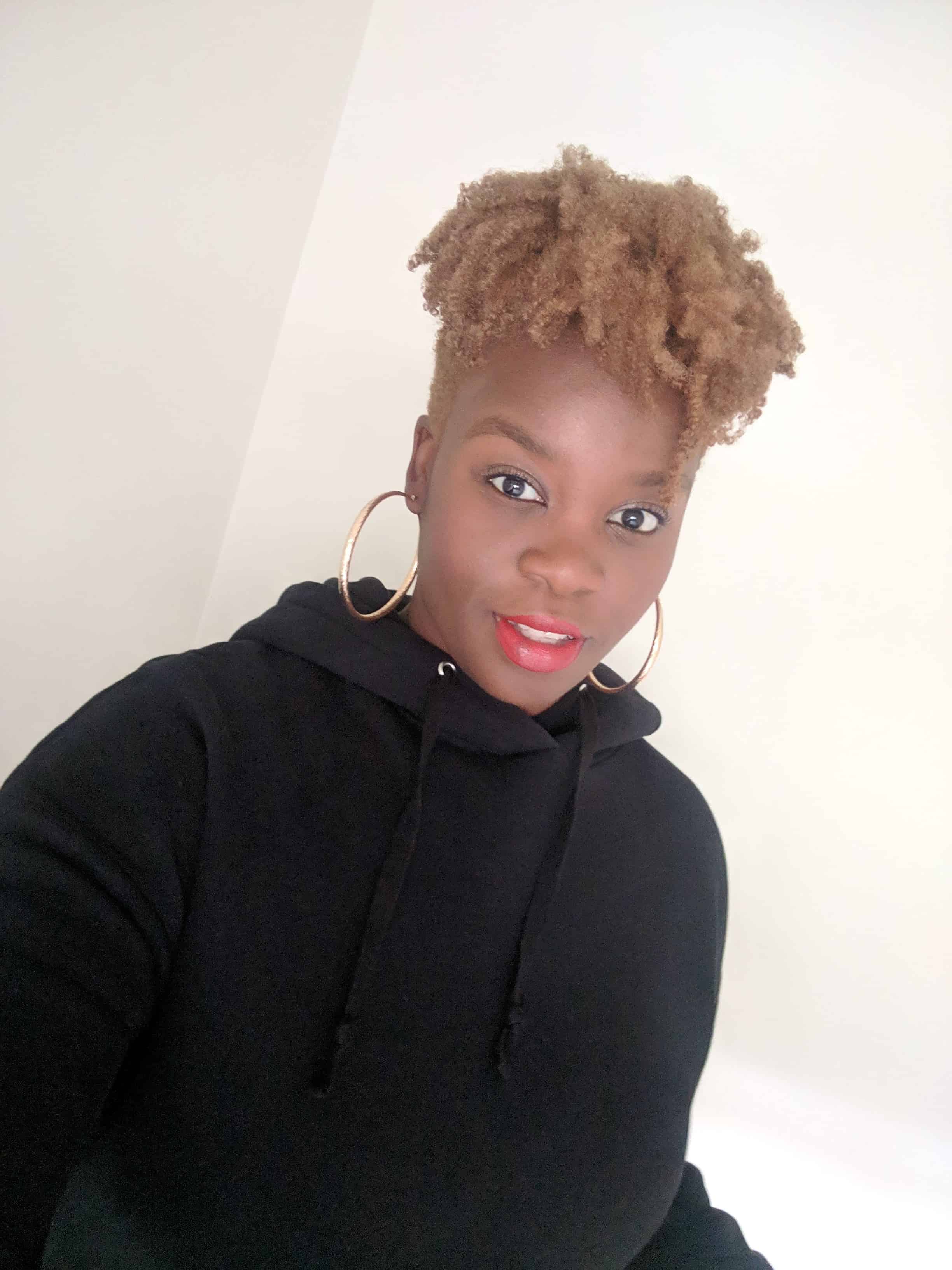In our ongoing Womxn x Alcohol series, we’re interviewing dozens of Canadians who stopped drinking to support their mental health as a way to explore and demonstrate how broad the alcohol-use disorder spectrum is.
Through sharing our stories, we hope to begin to educate the masses that recovery looks different for everyone, while also fighting the stigma that prevents healing—as individuals, and also as a society.
Yamikani Msosa is a Toronto-based organizer, educator and yoga instructor at the intersections of different movements of liberation. Yamikani stopped drinking in 2015, and in 2018 she partnered with friend Bailey Ried to start Unanoymous: a podcast about sobriety, feminism and radical sobriety. Yamikani has a lot of bold ideas about recovery, and we admire her courage to speak them loudly.
How did you stop drinking?
Honestly, I just went cold turkey. There were a number of things in my life that indicated that drinking was not working for me. Actually, if I think about it, it was my graduate supervisor who had prompted me to think about drinking impacts because I was dealing with so much anxiety and so … the anxiety was a bi-product of my drinking at the time. Also, I’m allergic to wine and would break out into hives every time I drank!
What does your recovery look like today?
My recovery is specific to me as a black queer femme and I think that’s important for me to name.
My recovery is something that I am constantly aware of in my life. Today I lean into therapy to help me process things that are coming up in my life. Yoga and yoga therapy have been important tools for grounding me.
I am also honest about when I am struggling with those in my life; they help keep me accountable. The thing is, life will still present hard times and so it’s about looking at the best coping options for me.
What was a major discovery you made during the early days (months) of your recovery?
Hmmm… I would say the biggest discovery that I made was that I became more aware of my co-dependency around relationships and the ways in which it was harming me, and others.
I also was able to see that self-acceptance, or the lack thereof, was a huge theme in my need for escapism.
Another big theme was the way in which I was not present in everyday moments for those that I loved.
Lastly, I think I learned that my sobriety was my own path.
What have you discovered more recently?
Fear has been a huge influencer… and that it’s important to lean into critical hope!
When someone asks you why you don’t drink, how do you respond?
Because it doesn’t work for me. If they probe then I will say something like “I’ve used it as an unhealthy coping strategy that has done more harm than good in my life,” and that usually does it!
Most people, to be honest, are just like “Cool! You don’t drink, thats cool.”
What does fun look like you today?
Fun is such a subjective word lol! I love wellness-related activities like yoga, travelling and also connecting with my community—through organizing.
What do you want to say to the womxn still struggling?
It’s okay to be struggling; you do not need to have it all figured out. There is this assumption that sobriety is the only way, and it isn’t. I like to take a harm reduction perspective—do what works for you!
I recognize that the reason why someone may be struggling is because of systemic related realities i.e. different forms of oppression, but also some folks aren’t interested in getting sober, but do want want to shift their behaviour.
Whatever works best for you, and that may mean trial and error. Be gentle with yourself as you figure out what you need.
What stigma do you think needs to be smashed?
I think one stigma that needs to be smashed is that sobriety is for everyone; some people have found other ways to navigate healing and using. I want to emphasize that sobriety, at least for me, is connected to socio-political understandings of systemic oppression. Meaning that it’s not just about individual will, but also conditions that folks are in, and we should not stigmatize folks who are struggling, or who actively choose to use. I know that people are often shocked when I say that, but I need to be honest in my perspectives.
What’s the greatest gift that sobriety has given you?
How to love me….
Find out more about Yamikani Msosa and her work and advocacy on her website. To read more interviews in our Womxn x Alcohol series go here.




 Follow Us On Instagram
Follow Us On Instagram
